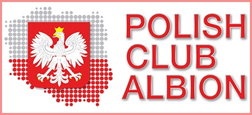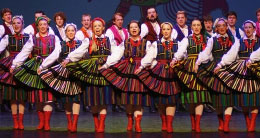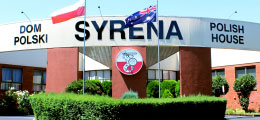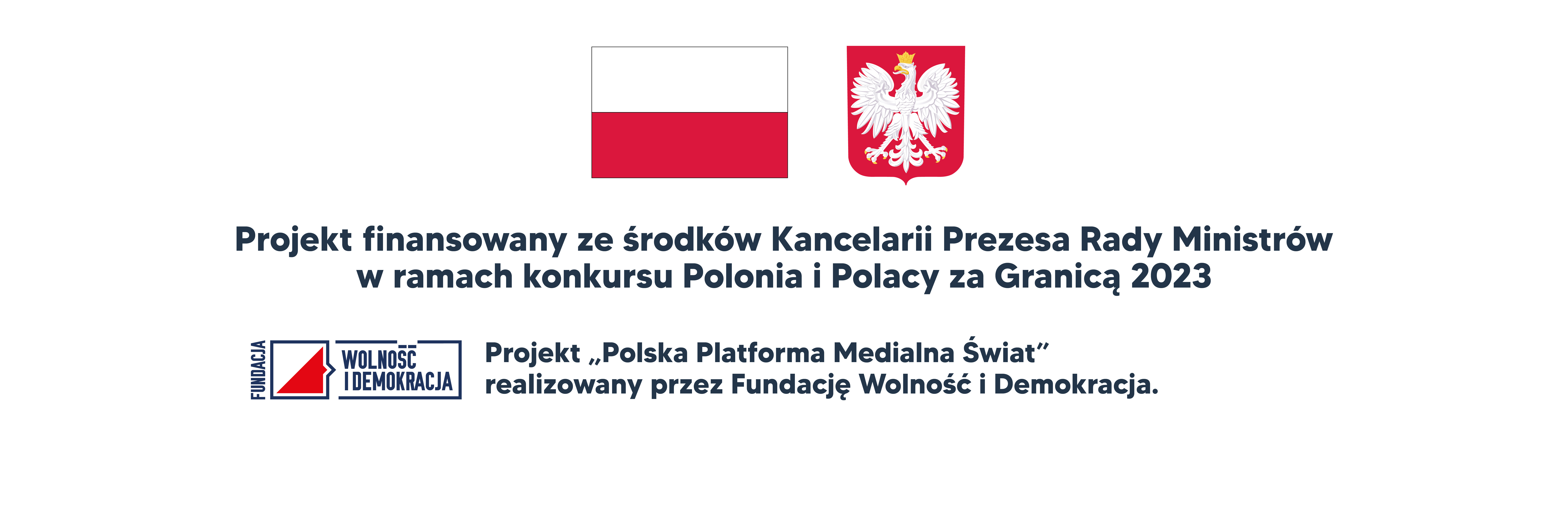The territories of present day Ukraine were colonised by eastern Slavic tribes after the fall of the Hun empire. In the ninth century they were conquered by the Vikings whose chief Rus gave the name to the whole country (ancient Rus inhabited by Ruthenians, present day Ukraine, Belarus, western Russia).
In the year 988 a descendant of Rus, Wolodymyr the Great, duke of Kiiv, accepted Christianity from Byzantine missionaries, thus giving birth to Kievan Rus. He is today revered in both Russia and Ukraine, each claiming him as its founder.
In early XIIIth century Rus was conquered by Tatars (Mongols). The Tatars broke Rus into small principalities, each required to pay them a tribute. The tribute collection was not kind; the duke had to meet the mounted collectors on foot (a big dishonour in medieval times) and offer them a drink of kumys (kind of beer made from mare milk), then lick up the drops from the necks of their horses. In addition to that the Tatars were free to raid the principalities for slaves at will, slave trade being their principal source of income.
It is no wonder then that the Ruthenian dukes started looking to their western neighbours for liberation from this barbaric rule. Those neighbours were Poland and Lithuania, whose kings from XIVth century onwards extended their protection to more and more principalities of Rus. At the end of this process Rus became split into 3 parts: Lithuanian (present day Belarus), Polish (present day Ukraine) and Tatar (present day western Russia). This split created those three modern nations and also delineated the border of civilizations, with the inhabitants of Belarus and Ukraine belonging to the West and the Russians happy to stay in the East. After the Russians (then still Muscovites) liberated themselves from their Tatar overlords their dukes (later tsars) declared themselves unifiers of all ancient Rus, and it seems they still have not abandoned this ambition today. They have also embraced the Tatar mode of government, where the khan or tsar is the absolute ruler of his subjects and can kill or let them live according to his whim, again quite distinct from the Western concepts of power. They would refuse to recognise western Ruthenians as separate nations, suspecting some sinister plot by their Polish overlords, just like today they seem to consider Ukrainians not a separate nation they want to be, but a group of Russians speaking a funny dialect and led astray by Western imperialists.
XVIth century borders in colour, today’s borders in grey.

The protection of Polish kings proved insufficient to prevent Tatar slave raids on Ukraine; in consequence most of the borderland remained deserted, inhabited only by adventurers living by the sword, collectively known as Cossacks. The Cossacks did not limit themselves to defence against Tatars, but they also raided Tatar and Turkish borderlands, sailed the Black Sea as pirates and even burned a suburb of Constantinople on occasion. The Turkish sultan threatened Poland with war and the Polish kings tried to restrain the Cossack adventures. The result was a disaster: a great Cossack uprising of 1648.
The Cossack leader (hetman), Chmielnicki (pron. Khmelnytsky, a great hero to the Ukrainians), turned out to be a brilliant military commander and a hopeless politician. After defeating the Polish armies he accepted, in turn, the overlordship of the Polish king, the Turkish sultan, the Tatar khan, and the tsar of Moscow, hoping that the four of them fighting themselves will allow him to maintain some independence. The result was predictable – a partition of Ukraine between Poland, Moscow and Turkey (the Turkish part soon reconquered by Poland), while the Tatars contended themselves with a million slaves.
The new border between Poland and Moscow (soon to become Russia) run along the Dnieper river. This borderline is still important today – while the Poles continued their liberal approach allowing Ukrainian language and culture, the Russians russified their part brutally (as we remember in their view there are no Ukrainians, just misguided Russians speaking a dialect). This is why today all Ukraine west of Dnieper speaks Ukrainian, while east of this river Russian language dominates.
The next chapter was opened by the partitions of Poland in the late XVIIIth century. As the result of those almost all of Ukraine became part of Russia, with only the western-most part (around Lviv) taken by Austria. The Russians allowed the Poles to dominate the economic and cultural life of their new province, while all political posts were filled by Russian expatriates; Ukrainian language was forbidden in print. The Austrians, in contrast, allowed the Polish elite to keep both political and economic overlordship, while quietly encouraging Ukrainian nationalism for possible use in a future war against Russia.
This future war came in the shape of the First World War. The German-Austrian coalition was victorious on the eastern front and by end of 1917 conquered the whole of Ukraine. In the Russo-German peace treaty (1918) the new Bolshevik government recognised Ukrainian independence, although in reality it was a German satellite. However, many Ukrainians, most of them no admirers of Germany, joined in the efforts to build their first modern state.
It was not to last. Soon after the Germans were beaten in the West and surrendered. After their withdrawal Ukraine became a contest between the Bolsheviks, their Tsarist opponents, and the reborn Poland. The Ukrainians, in their old Cossack tradition, split themselves into warring factions and lost everything. The Bolsheviks emerged as victors and took back their pre-war Ukraine, with the Austrian part retained by Poland. However, encountering fierce Ukrainian nationalism, the Russians allowed a formation of an Ukrainian Soviet Republic with Ukrainian as official language; even if the autonomy was only allowed in language and cultural matters, it was better than nothing.
Unfortunately, even this did not last. With Stalin taking over the Bolshevik state in late 1920s the old Russian suppression of Ukraine returned with a vengeance. With his policies of Great Hunger (a huge event in Ukrainians collective memory) and Great Terror Stalin starved and killed at least 5 million Ukrainians, perhaps many more, hoping to break their spirit.
Then Stalin allied himself with Hitler and once again they partitioned Poland between themselves, starting the Second World War in the process. All of Polish Ukraine became Stalin’s loot, so finally the country was united, triggering some initial enthusiasm, quickly extinguished by Soviet terror and genocide.
Stalin and Hitler, while pretending to be the best of allies, were in fact both preparing to stab the other in the back at the first opportunity. In this contest Hitler proved to be smarter, attacking the Soviet Union in 1941. Not surprisingly, the Ukrainians welcomed the advancing Germans as liberators. Hitler had no intention of allowing free Ukraine, but did not mind using this enthusiasm to form Ukrainian auxiliary units to be used as cannon fodder.
The Ukrainian leader Bandera (big hero there today) was no admirer of Hitler and the Germans. He accepted their training and weapons, then ordered his units into ethnic cleansing, killing Poles and Jews (~300,000), hoping to create a homogenous Ukraine at the end of the war. Today’s cult of Bandera is the basis of the Russian claim of Ukraine having been taken over by Nazis, from whom they are going to be liberated by their Russian brethren. Like every good lie it contains some truth; Bandera was indeed a (reluctant) ally of Hitler and he did order genocide, so even though he was no Nazi he is certainly no role model. On the other hand he never sought anything for himself, everything he did was in the interest of his nation as he understood it, this is why he is admired.
Bandera’s efforts came to nothing; Stalin won the war and Ukraine stayed a Soviet republic until the fall of the Soviet Union in 1991. In a national referendum the overwhelming majority of Ukrainians voted for independence.
For the first twenty years there seemed to be a balance between pro-Russian east (stay within the Russian sphere of influence) and pro-western West (move towards eventual membership of the EU and NATO), the dividing line running exactly along the old Polish-Muscovite border.
What tipped the balance was the economy – the pro-Russian politicians created an economic system similar to mother Russia with a handful of oligarchs getting rich through corrupt government connections while the population remained desperately poor. However, with open borders more and more young Ukrainians were going to western Europe to earn some real money, and they started to comprehend the difference. As an example, in early 2000s an Ukrainian worker was earning less per month than a German worker per day (now you know why the Soviets needed a Wall).
In 2013 the parliament passed a bill for association with the EU, which was then vetoed by the pro-Russian president and the country erupted. The nation has clearly chosen to break its century old ties with the empire of Genghis Khan and join the West.
The Russians reacted like true descendants of that great Tatar emperor. They attacked, annexed Crimea, seized territories elsewhere presumably as a bargaining chip, and when this did not work, invaded full scale this year. It seemed such an easy thing, a superpower crushing its small neighbour, but in fact it has turned into anything but. The Ukrainians have chosen the West and they are willing to die rather than give up this choice, and, to the surprise of the world, this willingness is somehow stopping the tanks of one of the world’s most powerful armies.
Those of us lucky to live in the West could learn something here. We tend to focus on the problems of our societies, our media delight in bombarding us with news of scandals and past injustices. The valiant defenders of Ukraine remind us that the West, with all its faults, is still the best this planet has to offer, by a far margin.
Let us hope one day the Russians will see this too.
Dariusz Mikołajewski









 Head Office:
Head Office: